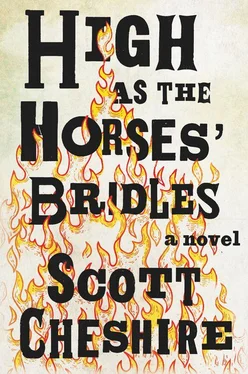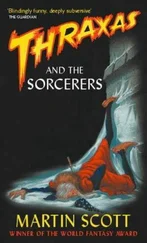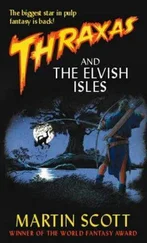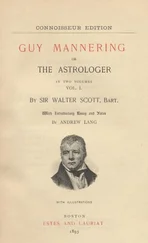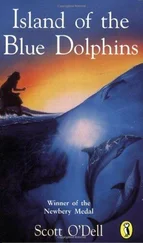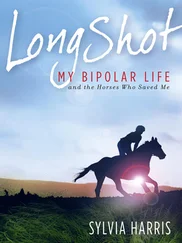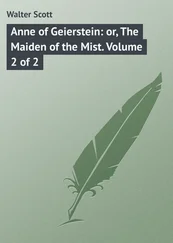Most of that behavior, the more extreme kind, stopped the famous summer of my “vision,” or whatever you want to call what happened. It seemed the very thing he’d been waiting for. And of course there was the father who tossed me aside when I left New York. Last of all, the father who lost my mother. I’d wondered how he’d go on. But he did. I wondered who he was now, without Mom. Was he different? How different? Without Sarah, I felt lost inside my own body, and she was alive and well.
I decided my favorite version of Dad was a young Gill Laudermilk, looking like an older Luke Skywalker, back when he and I assembled my first sermons in the garage, and I practiced speaking in the full-length mirror by his study desk, when he let me drive his station wagon, a brand-new Ford Country Squire, fire-engine red, in a nearby supermarket parking lot. My favorite mother was the great protector who once boxed the ears of a sixteen-year-old neighborhood bully because he had tripped me. A wide gash had opened in my bottom lip when my chin hit the sidewalk. Mom once said, “Never listen to what others say about your father, because your father is a man of God.” She followed his every revelatory whim, every iteration. My favorite father drove up our street in his Country Squire like he was in a homecoming parade; he honked his horn and grinned from behind the windshield, saying, My son’s gonna learn how to drive! Wheels crunching gravel in the driveway, he shouted: This old world, my boy, it’s sinking! So if now’s not the time to splurge, tell me when? Tell me when!.. The porch of our house was a covered porch, yellow with white wooden columns, and you could see the newly built Sikh temple behind our yard, and around the corner its pear-shaped rising roof, and my mother watching the workers disassemble the scaffolding, saying, What happened to the Irish and Italians, good churchgoers, this neighborhood is so brown … From the porch, we watched lightning storms while sitting on the sofa my father had found in a trash pile ten blocks away. It smelled of basement wet and hot asphalt, and sat in front of the living room window, opposite the sofa on the window’s other side, inside, where we watched old movies and ate peanuts from orange plastic cups. Mom used to say, Star Wars makes me so nauseous. I mean it’s exciting, Josiah, it is, but the world can never get that way because we won’t last that long. Armageddon’s right around the corner … Sausages simmering in the Crock-Pot.… It’s not easy! she’d say. But not much longer before our Heavenly Father comes home. And it’s so, so sad that no one in the neighborhood will ever see Heaven, because the Hindus don’t know Jesus. These statues of Ganesh, circus elephants sitting pretty with flowers in their hands, this is God? Abomination!
And there was something about the way the Bible told them, telling me, Sweetie, the monsters are real. A demon with six hungry heads and the Wild Beast will come from the ocean, and the Whore will ride on its slick, wet back, and that Last Day will be like no other since the floodwaters covered this earth, wiping away every evildoer. And the falling stars will blow like bombs, and the poison mushroom clouds will bloom—
Goddamn! Dad shouts, I’m sorry for my language, but my God, isn’t it high time! Because this generation will not pass away before the Day of the Coming of the Lord! So why not go ahead and get us a brand-new car? Shiny and red like Golgotha’s blood-soaked mud! You heard it spoken by the brothers at church: You were right, Josiah! It’s coming! This is war, so stretch your legs! And I bet everything we have in this life that this world will crack in half, and stink like the dead egg it is! I will not be caught unawares with my family running after buses packed with Catholics. I will not be dependent on Muslims, or Moonies, or anyone but our provider who does not have a car, who does not need a car, but rides on the holiest of horses. And we will follow him to Heaven, to the sun if he takes us, this is not your mother’s world, and this is not your world, so take this place and shove it down Gehenna’s hungry throat. And, my son, when you are a full-grown man, and it’s your time to steer, you will sit in the driver’s seat and take us home in the fashion of real holy worship. And we will lift up ourselves and finally grow wings because this here round nest is done, say it with me, son, “ All the former things are passed away, all the former things …”
I once saw my father’s hands on my mother’s neck, just once, on her shoulders. He was pushing her against the dining room wall. I was astonished. I thought they were hugging, but then they weren’t hugging at all. When was this? Sometimes there were finger-thin bruises on her arms, but by the time I was a teenager the bruises had gone away. When I was about thirteen, I saw Dad limp and pale, as if he’d fainted, on the garage concrete floor. My mother was crying out, to me, him, to the ceiling: Your father’s only sleeping, you wake up, honey, so what if they took the car.…
I looked away from the window, and toward Abdullah. A cigarette would have been nice. But the pack was in my bag, the bag was in the trunk, and I’d been quitting for years.
“To Richmond Hill, yes?”
I said, “Let me ask you something, are you Muslim?”
He looked at me in the mirror. “Why do you ask me this?”
“I’m just curious, because if you are, then wouldn’t the betel nut be … well…”
He slung his elbow over the seat and he faced me. His eyes were then back on the road. “I am Abdullah. Almost too much as it is.”
I laughed along with him.
“So where are we going?”
I told him the address.
A low tinny voice chirped from the cell phone’s receiver. Abdullah shouted back in his language.
I looked out the window.
Why take the long way home? Why go out of my way?
A small boy swung from a fire escape on the first-floor front of a high-rise apartment building, and then the boy was gone, and then the building was gone, which was then replaced by other buildings, and storefronts with apartments in the floors above, and more tall buildings. I thought of how this place was vertical, and of beaches, and I actually had trouble imagining them. I’d walked on how many beaches, and I was seriously having trouble picturing them. The West Coast is all horizontal. No need to build upward there. Just bulldoze inland, to the foothills and the flatlands, head for the deserts. And now I was finding real comfort in the difference. I saw the brick buildings and flat roofs crowded with satellite dishes. I saw the pizza shops, and more pizza shops, the 99-cent stores and the sidewalk sales. We drove by myriads of splintering telephone poles shot at with staple guns, and the flapping flyers promising miracles of overnight weight loss.
The elevated trains over Jamaica Avenue rattled overhead.
The diners all along the boulevard.
The cars, so many goddamn cars, and the trees, the dirt squares surrounded by sidewalk, and the maples and towering oaks, four or five on every block, branches resting on saggy telephone wires.
The cars parked on streets, in the driveways. I counted the driveways until I stopped counting, and before long I recognized the store on the corner, “24/7 Milk Depot,” they’d kept the name. Where I used to get bagels, and once I had to ask a tall pretty lady for help, to reach up and get the sanitary napkins that Mom had asked for, up on the highest shelf.
“We are here,” he said. I paid and we stepped outside. He handed me my duffel and winked. Trunk slam. The tires squealed as he pulled way.
I was back in the world.
The burned-out shell of a Volkswagen Beetle sat across the street, parked in front a vacant lot. It had no doors. A small girl played with a Barbie, her little legs splayed behind her on the sidewalk. The house, my father’s house, our house, was looking really old. All of the houses were old, but ours seemed so very old. Which made me what, made my father what? The porch sagged, and leaned forward like it was easing into a recliner. The columns were slightly bowed, had arthritic elbows, and the house appeared to be in mid-exhalation. The chain-link fence was torn in places, rifts in the waffled steel. And the garage looked to have been unused for years. A large burn mark scarred the token front rectangle of browning grass. Weeds covered most of the front yards. I saw a mattress on a roof two doors down. A smell of fuel, gas, kerosene, something pungent was in the air. And the swoop of the Sikh temple’s swooping roof, around the corner, was exactly where it should have been, rising behind and above my father’s house. I am where I was made. I lugged my bag, opened the gate, and walked up the steps.
Читать дальше
